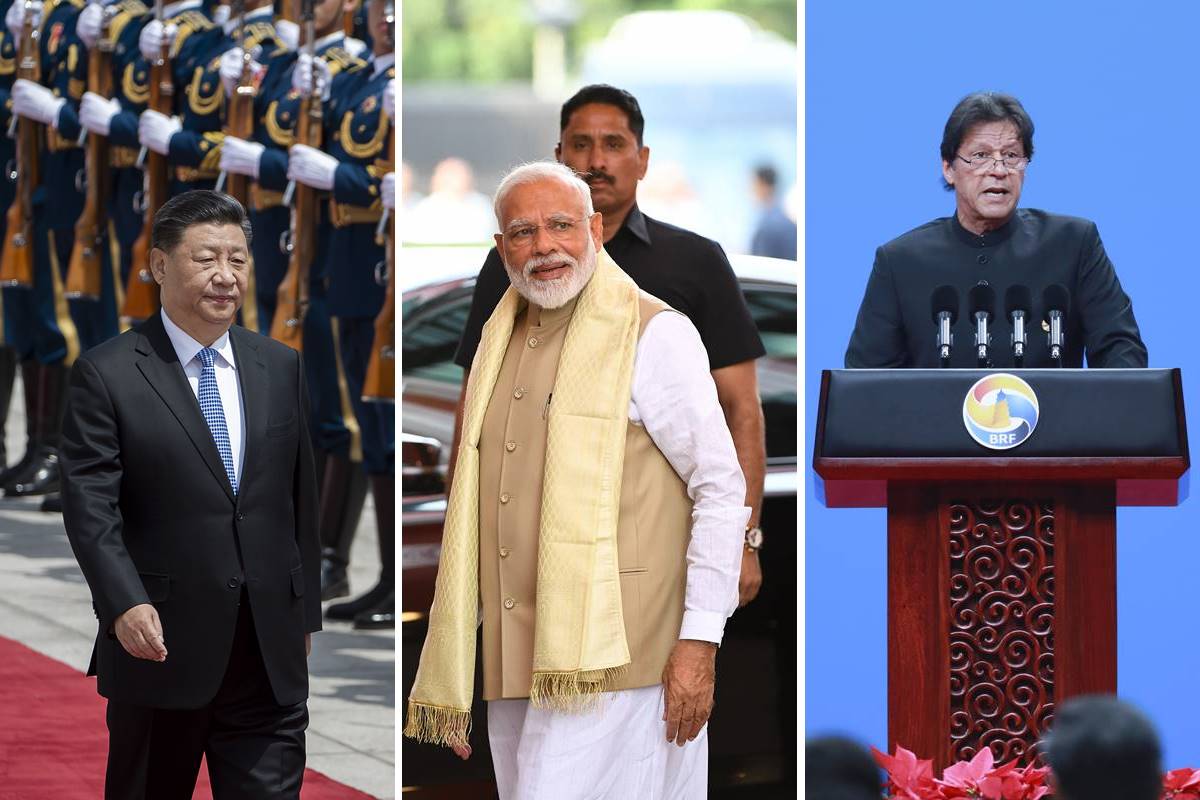The focus will again be on India’s complex ties with China and Pakistan on the foreign policy front as the new BJP-led government assumes office in New Delhi at a time when the geo-political situation in the world is undergoing a rapid change.
Both Chinese President Xi Jinping and Pakistan Prime Minister Imran Khan were quick to congratulate Narendra Modi on leading the NDA to a landslide victory in the Lok Sabha elections.
Advertisement
Soon after being sworn-in as the Prime Minister for a second time, Modi is set to travel to the Kyrgyz capital of Bishkek in mid-June for the Shanghai Cooperation Organisation (SCO) Summit, which will also be attended by both Xi and the Pakistan premier.
Modi will hold bilateral talks with Xi on the margins of the SCO Summit that will provide the two leaders an opportunity to give a new momentum to bilateral ties. Modi and Xi have established a close rapport between them during nearly a dozen meetings they have held over the last few years.
Thanks to their personal chemistry, the two countries were able to resolve the situation arising from the military-stand off at Doklam in the summer of 2017 which them close to a full-scale war. At their informal summit in Wuhan in April last year, the two leaders had firmly resolved not to allow differences between their two nations to become disputes. Both sides are hopeful that the ‘Wuhan Spirit’ will continue to define ties between the two nations in the coming years, Meanwhile, Modi and Xi are scheduled to hold a second informal summit later this year in India.
India is satisfied that China has finally lifted the technical hold at the 1267 Sanctions Committee of the UN Security Council for declaring JeM chief Masood Azhar as a global terrorist. However, China’s continued stonewalling of India’s bid to join the Nuclear Suppliers’ Group (NSG) remains a major irritant in bilateral ties. On top of it, Beijing has not satisfactorily addressed India’s grievance over the yawning trade deficit between the two nations.
When it comes Pakistan, it is to be seen if Modi will exchange pleasantries or hold informal talks with Khan at Bishkek, although the heat and dust over the elections in India has now settled. The informal talks between the foreign ministers of the two countries on the margins of the SCO foreign ministers’ meet earlier this week has indeed raised expectations of some interaction between the two leaders.
Tensions between the two countries had reached an alarming proportion following the Pulwama terror attack in February, followed by India’s air strike on a JeM camp in Pakistan’s Balakot. Pakistan has been pitching for the resumption of long-stalled dialogue but India has refused to budge from its position that Islamabad must end cross-border terrorism to create an atmosphere for talks.
Lately, the US has become a difficult partner for India despite the growing defence and strategic partnership between the two nations. India will have to take a call on how it is going to protect its energy security now that the US has refused to grant waiver from oil-related sanctions against Iran. India’s plea that it be allowed to continue oil purchases from Iran have fallen on deaf ears in Washington. On trade issues too, there are widening differences between the two countries which the Modi government will have to grapple with.
Russia continues to be a time-tested friend of India and Modi will be keen to further consolidate this relationship, ignoring warnings from the Trump administration from time to time over the burgeoning India-Russia defence cooperation. India will also have to see that Russia avoids getting into a robust defence relationship with Pakistan.
Israel will continue to occupy a pride of place in Modi’s foreign policy, particularly on matters of security and counter-terrorism. The friendship between Modi and his Israeli counterpart Benjamin Netanyahu is envy of many world leaders. Indian officials don’t rule out the possibility of Netanyahu visiting India again this year.
India will also have to keep a close watch on the changing security situation in Afghanistan in view of the peace overtures being made by major powers towards the Taliban and the imminent withdrawal of American troops from the war-torn nation. India, which has a huge at stake in Afghanistan, is expected to stick to its stand that the peace process in the embattled country must be Afghan-led and Afghan-owned.
CLICK FOR MORE 2019 ELECTION NEWS









